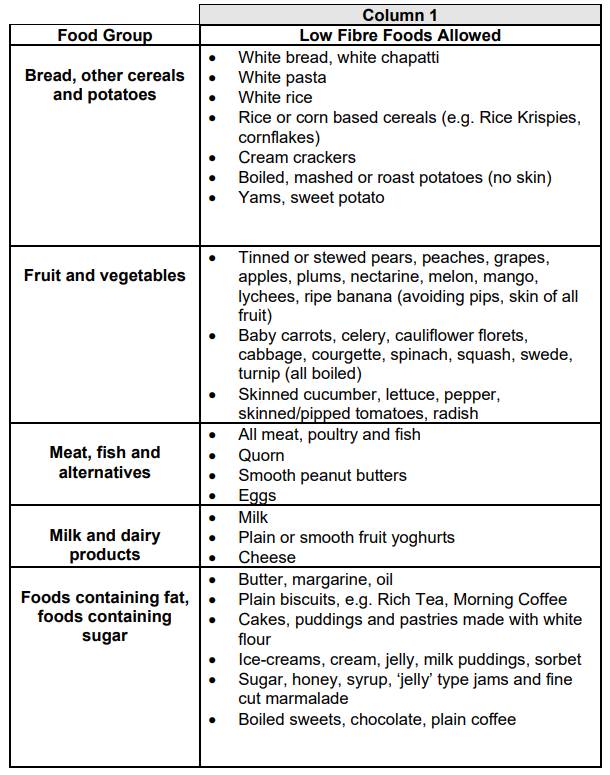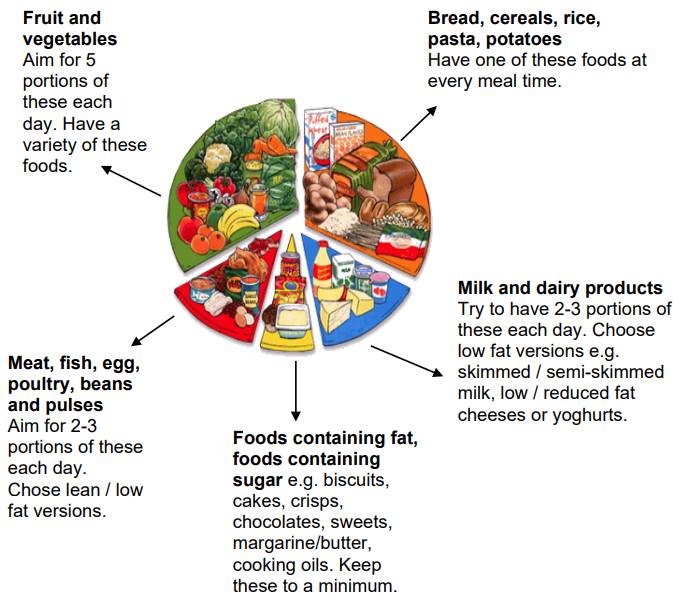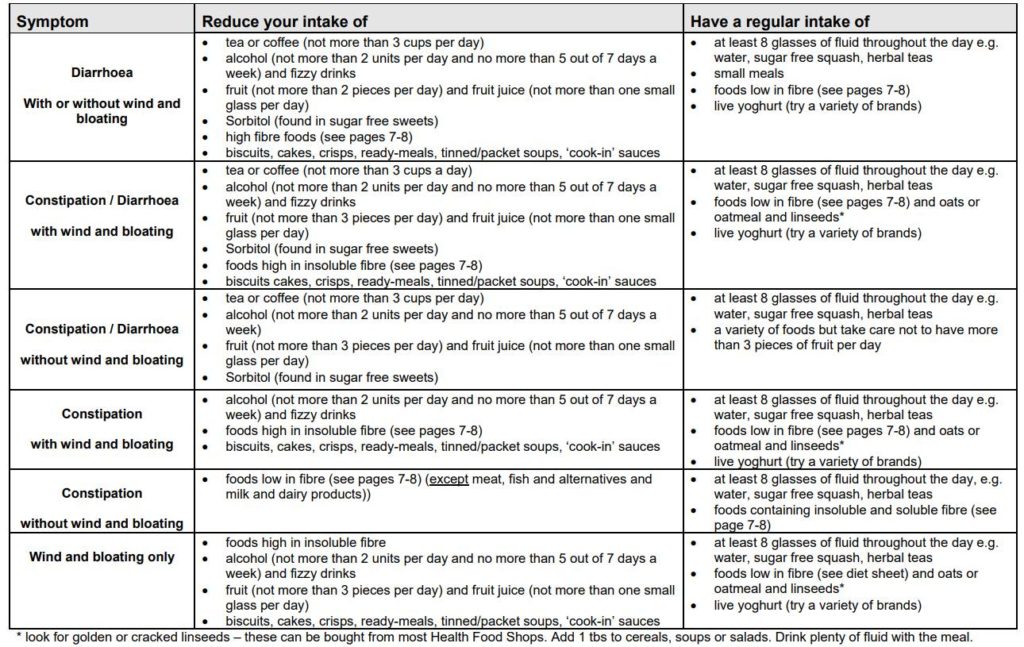A self–help Guide for People with Irritable Bowel Syndrome
Please note, this page is printable by selecting the normal print options on your computer.
What is IBS?
Irritable bowel syndrome is the term used to describe a variety of gastro-intestinal tract or ‘gut’ related symptoms. It is the most common disorder of the gut in the western world. A third of people
in Britain have occasional symptoms of IBS, 1 in 10 have symptoms bad enough to require medical attention. Symptoms vary from one individual to another. Symptoms appear to be due to an increased sensitivity of the bowel, which results in spasm of the bowel muscle.
The most common symptoms are:
• diarrhoea/constipation or both;
• lower abdominal pain, which may ease after going to the toilet;
• feeling bloated;
• feeling you still need to go to the toilet when you have just been;
• passing mucus – even on its own;
• a feeling of urgently needing to go to the toilet.
Other symptoms may include:
• loss of appetite;
• nausea/vomiting;
• tiredness;
• belching/excessive wind;
• pain during sexual intercourse;
• worsening of symptoms during periods.
It is not normal to pass blood, have diarrhoea waking you from sleep or have unintentional weight loss of more than 2kg (4 pounds) if you have IBS. If this does happen, it is important to consult your doctor. If you think you have IBS, discuss your symptoms with your doctor before trying any of the treatments discussed in this leaflet.
What else could help?
Medication
A number of different drugs are available which may help to relieve your symptoms. Your doctor will advise which medicines are suitable to try.
Relaxation
Stressful situations can make IBS symptoms worse. Try to find out what affects you. Some ways of coping are: taking time to relax; relaxation tapes; yoga; aromatherapy; massage or exercise (gently).
Other useful addresses are:
The Gut Trust (formerly IBS network) Unit 5, 53 Mowbray Street, Sheffield, S3 8EN Tel: 0114 272 3253. Website www.theguttrust.org
Some questions answered
Can herbal drinks help?
Some people find that herbal drinks such as peppermint or camomile help.
Should I take live yoghurts or fermented drinks?
Live/bio yoghurts e.g. Loseley, Onken, Nestle LC1, Provamel, Natural Yofu, Danone Activa and fermented milk drinks e.g. Yakult, Actimel or Neslte LC1contain cultures (bacteria). These bacteria may help further digestion of food in the lower part of the gut. This may reduce symptoms of wind and bloating. However, the amount of live bacteria in different products vary and cannot be
guaranteed. You will need to take these every day for at least 4 weeks for them to work. It may also help to try another brand containing a different bacteria, if the first hasn’t helped.
Do I have a food allergy or intolerance?
True food allergies are rare and unlikely to cause IBS symptoms but they could be caused by food intolerance. There are no known reliable tests for food intolerance. An exclusion or elimination diet is the only way to find out if your symptoms are made worse by certain foods. If the advice given in this leaflet has not helped and you may feel your symptoms may be due to food intolerance, please ask your doctor to refer you to a State Registered Dietitian.
What causes IBS?
It is not known exactly what caused IBS. In some cases, symptoms may start after having a tummy bug or a stressful life event.
Can IBS cause cancer?
No – there is no evidence to suggest that IBS and cancer are related.
So what can I do to relieve my symptoms?
The suggestions in this booklet are based on the following steps:
Step 1 – Look at your lifestyle
Step 2 – Adjust your diet according to your symptoms. Make the changes to your diet gradually, as your gut will need time to adjust. Allow 3-4 weeks for any improvement. If your symptoms still have not improved after 4-6 weeks.
Step 3 – Consult a dietitian for further advice – ask your GP or hospital to refer you.
You may find it helpful to keep a diary of your diet and symptoms as you make these changes. This will remind you of what has helped. Read on for advice on steps 1 and 2.
Step 1 – Look at your lifestyle
If you have a busy life, you may be relying on ready-meals, high fat snacks or takeaways. Whilst these are OK to have occasionally, you may not be getting all the nutrients you need and these foods could be making your IBS symptoms worse.
Try these simple lifestyle changes:
• Follow these guidelines to ensure your diet is well balanced
• Eat three regular meals each day – don’t be tempted to skip meals
• Try making more meals using fresh ingredients (instead of ready meals)
• Chew food well and take time to sit and eat
• Drink plenty of fluid – at least 8 cups a day (but not all tea, coffee or fizzy drinks as these can worsen symptoms. Alcohol can also make symptoms worse). Water, sugar-free squash and herbal teas are good choices.
• Take regular exercise e.g. walking, cycling, swimming.
• Make the most of your leisure time and take time to relax. Stressful situations can make IBS worse. Try to find out what affects you. Relaxation tapes, yoga, aromatherapy or massage may help.
How much fibre should I have?
This depends on the symptoms you experience. Fibre (also known as non-starch polysaccharides or NSP) can be split into two types. The balance of these two types as well as the amount may need to be altered. The two types of fibre are:
• Insoluble fibre which provides the ‘bulk’ helping waste to move through the gut (see pages 7-8).
• Soluble fibre which absorbs fluid in the gut and helps to make the stool softer and easier to pass (see pages 7-8).
Sources of fibre


How do I make sure my diet is balanced?
Chose a variety of foods from each of the five food groups shown below.

If you still have symptoms after following the advice in Step 1 – turn the page for more advice in step 2.
Step 2 Adjust your diet according to symptoms. If there is no improvement after 4 weeks, ask for a referral to your dietitian for further advice. Please refer to pages 7-8 for a list of fibre sources.

